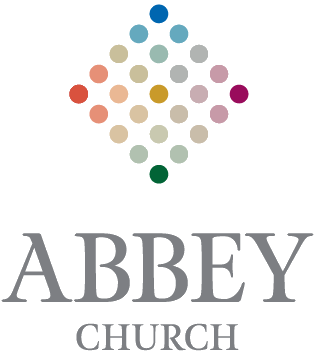In the Presbyterian Church we observe two Sacraments: Baptism and Communion. We will say more about Communion in a separate section and concentrate here on Baptism.
- What Baptism is
- Who can be Baptised
- How Baptism is administered
- Requesting Baptism
- Preparing for Baptism
- The Baptism Service

What Baptism is
Baptism, to use the liturgy’s words, is “a Sacrament, ordained by Jesus Christ, to be to us a sign and seal of our in-grafting into Him; of remission of sins, and regeneration by His Spirit; of reception into the Church of God, and resurrection unto eternal life; and of our response unto God, through Jesus Christ, to walk in newness of life.” As is often the case with these kinds of statements a great deal of unpacking is required to appreciate the meaning and the intention, but it should be immediately evident just how vital the role of Jesus is in the Sacraments and for their benefit.
Who can be Baptised
We baptise believers and we baptise the children of believers. In all of our conversations with people we talk about ‘baptism’ and not ‘christening’ because we do not hold that the sacrament actually makes the person a Christian. You can click the following link to download a leaflet on ‘Baptism of Children in the Presbyterian Church in Ireland’ This leaflet provides a broad framework for administering baptism but if you are thinking about baptism for yourself or for your child please contact the Minister. We would point out that a preparation course is normally required, so advance notice must be given. Whilst we are happy to meet in the family home to pray with and to bless any child, we do not perform such blessings in the church service as this may confuse people in respect of our Baptismal practice.
How Baptism is administered
Baptism is only administered once (in contrast to Communion which is a repeated Sacrament); so if a person presents themselves or their children to us having been baptised previously in another church we will not re-baptise them. If, on the other hand, they have not been baptised we will, on a credible profession of faith, happily baptise them. Churches vary widely in their understanding of Baptism, indeed disputes over who should be baptised, how and when have led to the creation of particular churches and continue to define them. The arguments are often complex and have as much to do with politics as theology, but virtually all Christians agree that Baptism must be done in the triune name of the Father, the Son and the Holy Spirit; and with water. Some churches insist that only full immersion in water constitutes Baptism whilst other churches, including our own, consider sprinkling or pouring to be adequate. The Presbyterian Church in Ireland is about to re-examine the issue of immersion, so our position may yet be revised in this respect, but we will continue to Baptise the children of believers in accordance with our understanding of Scripture.
Requesting Baptism
Should you wish to consider Baptism either for yourself or for your children, you should contact the Minister who will guide you through the process. Since this will normally require a course of preparation we would encourage you to make contact at the soonest opportunity.
Preparing for Baptism
Preparation can be anything from one session (for those who are already familiar with our arrangements, having previously gone through a full course), to eight sessions (or even more if it transpires that the individual has deeper needs and concerns that need to be addressed). We would point out that this is not obstruct people and make things as hard as possible, rather it is to ensure that when people finally come for Baptism they do so with understanding, conviction and expectation. This way we honour the gift of Baptism and we honour the God who gifts it to His Church.
The Baptism Service
Baptism will normally take place during a public service (usually the Sunday Celebration). It is conducted within this context to emphasise the free and public (not secret) expression of the person being Baptised; the corporate and mutual support from the congregation towards the person being Baptised; and the Scriptural foundation and authority upon which all of this is based. Only in exceptional circumstances will Baptism be administered in a private context.
